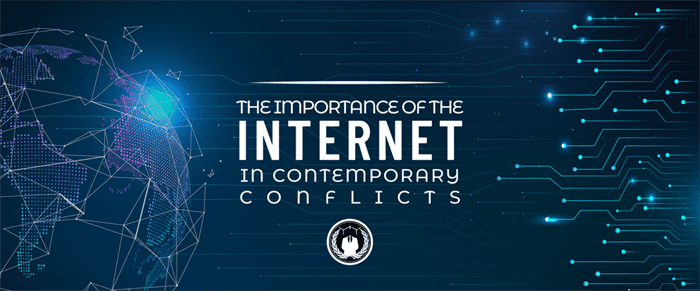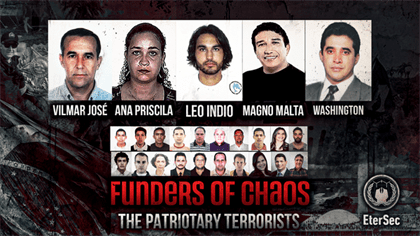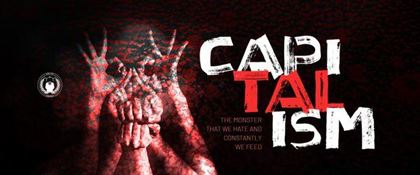The importance of the internet in contemporary conflicts
Technology is a product that involves a set of tools, methods, and techniques aimed at solving problems. We can highlight one of them as being the most prominent in the 21st century: the internet. Globalization, a process that has expanded exponentially thanks to the computer network, shows how technologies can contribute in various ways to the advancement of society. If you are not in the technology area, it is unlikely that you know about the origin of the internet, or even, what the ARPANET is. We can also highlight the importance of the Internet in contemporary conflicts, and how the Internet can save lives in countries at war.
In the Cold War period, the United States had a huge interest in searching for solutions for the case of a Russian nuclear attack, where their information and communications would remain secure. Because of this difficulty, many technologies were developed, one of them is the one we are using right now, the internet. The results generated by the USA vs Russia conflict, besides the social impacts, were also in the technological sector. In 1962, Paul Baran, an engineer from the Rand company, presented a communications system that, through computers connected to a decentralized network, was immune to external attacks.
That is, if one of the computers was attacked, the others would still keep the network running. The ARPANET, appears in 1967, but it is in 68 that it has prominence for connecting the University of California and Stanford Research Institute, October 29 being the date on which the first ARPANET message was sent. From this moment on, the world would no longer be the same, a new era was about to begin, a new world was beginning.
With a fundamental role in various aspects, in the maintenance and organizational growth of the most diverse sectors of society, the internet with its connectivity has become, more and more, a premise for everyone's evolution. Large urban centers are becoming more and more intelligent, that is, the influence of the internet of things is showing its place in the world. Facing the various conflicts found in society, the internet has become one of the fundamental means of communication.
What used to take days or weeks for information to arrive, today we can know practically instantaneously. Information is transported so fast that we can check how the traffic is, what the weather is like, what happened on the reality show last night, what the Cold War was like. We can study, send jokes, and many other things. In short, communication is a weapon, which thanks to the Internet has enormous power. The cyberactivism is an example of how we can use the internet to charge corrupt politicians, to do tweeting demanding a position in front of racist comments made by influencers, and even to ask for the removal of politicians who act in a misogynistic way.
The internet has great importance in the organization of social movements, whether in movements on the internet itself, cyberactivism, or organizing protests in the streets. We can mention the demonstrations of June 2013, known as jornadas de junho (June days), where more than a million people went to protest in the streets, in more than 100 cities all over Brazil. The protests began with the increase in bus fares, and the demonstrators mobilized on social networks.
Of course, with the high number of demonstrators in the streets, this mobilization had a great reach of the big TV stations. The government soon wanted to disperse the protesters from the streets, using the brute force of the police. Several videos of the police attacking the demonstrators went viral on social networks, causing more anger in the population, and mobilizing even more people to the streets. The demonstrations that started with the rise in bus fares soon gained other agendas, such as health, education, and government mismanagement. The groups that organized the protests were hijacked by political parties, and soon, were in the system.
On a global scale, we can highlight a new form of warfare, what we call cyberwar. Warfare conducted in and from computers and the networks that connect them, waged by states or their proxies against other states. Cyberwar is usually waged against government and military networks in order to disrupt, destroy, or deny their use. Cyberwar should not be confused with the use of cyberterrorism or with cyberespionage, or cybercrime. Although similar tactics are used in all four categories of activities, it is a misinterpretation to define them all as cyberwar.
Some states that have engaged in cyberwar may also have engaged in disruptive activities such as cyberespionage, but such activities do not constitute cyberwar. One of the first references to the term cyberwar can be found in "Cyberwar Is Coming!", a landmark article by John Arquilla and David Ronfeldt, two researchers at the RAND Corporation, published in 1993 in the journal Comparative Strategy.
Attacks can be made against the network using cyber weapons that destroy, interfere with, corrupt, monitor, or otherwise damage the software that operates the systems. Such weapons include malware, malicious software such as viruses, trojans, spyware, and worms that can introduce corrupted code into existing software, causing a computer to perform actions or processes not intended by its operator.
Other cyber weapons include distributed denial-of-service, or DDoS, attacks, in which attackers, using malware, hijack numerous computers to create so-called botnets, groups of "zombie" computers that then attack other target computers, preventing their proper functioning. This method has been used by Anonymous several times, one can cite Operation Payback in 2010. It is alleged that the attackers, mainly civilians, conducted denial of service attacks against major websites that held donations for neo-Nazi sites. Russia has just declared an attack on Ukraine, where so far countless bombings have taken place, as well as many invasions.
On the digital scene, many Ukrainian government services have suffered denial of service attacks, done directly by the Russians. It is unfortunate that even systems essential to life have been attacked, such as hospital systems and educational services. The president of Ukraine has made a request to the best IT people in the country to join together in keeping these all online, as lives were at stake. In parallel, many digital activists have come out in defense of the Ukraine, carrying out attacks against Russian services, we at Anonymous have declared a cyberwar against Russia as long as they are attacking the Ukrainian population.
In the virtual context Russia has been and is censoring many websites that address the war in an unbiased way, the social networks that hold most of the information have also been and are being censored. Because of this scenario, we at EterSec have made a digital primer that can be printed out so that Russian citizens can circumvent the censorship. You can find the full article here.
On the Internet, we have access to information that we could not obtain in a simple and quick way. For example, information about conflicts involving two countries on another continent at war. Communication is fast, it is amazing that through it we have hundreds of applications, where we can have contact with people around the world. We get access to various means of knowledge, such as wikipedia, free online books, music, photos, and other things. It is also the main resource for studying in distance learning, offered at schools and universities.
As seen above, it is also fundamental for us to be able to organize ourselves in activist actions. To show our dissatisfaction with the rulers, who don't do their job properly, who leave the population day after day without basic needs, without security, and with a huge uncertainty about the future. Today, the internet is our main tool, to show you the shenanigans that the government puts under the carpet. With it we are able to carry out the operations that you have access to. We reveal information that they try to hide from us. We act so that there is no censorship.




